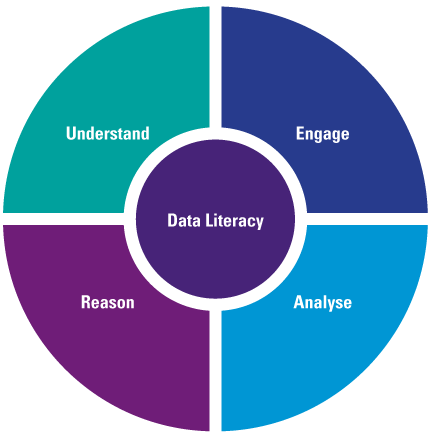Circulation Desk
Email a Librarian

Information Literacy is the ability for users to recognize when information is needed and the ability to locate, evaluate, and use resources/information effectively. There are five components of information literacy:

The 5 information literacy standards are described more in the Information Literacy Competency Standards for Higher Education by the American Library Association. You should be able to:
Watch this video from Seminole State Library to learn more about the five components of information literacy.
Data literacy is a subset of information literacy that enables users to access, interpret, assess, manage, handle, and use data. There are four cornerstones to data literacy:
